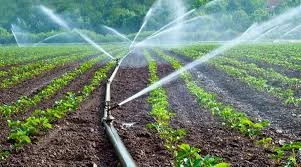 Today, Mali announced a strategic expansion of its irrigation infrastructure aimed at combating drought and supporting sustainable agriculture. The initiative seeks to provide farmers with better access to water resources, addressing the challenges posed by climate change and recurrent dry spells affecting the region.
Today, Mali announced a strategic expansion of its irrigation infrastructure aimed at combating drought and supporting sustainable agriculture. The initiative seeks to provide farmers with better access to water resources, addressing the challenges posed by climate change and recurrent dry spells affecting the region.
Focus on Agricultural Support
Mali’s expansion project is part of a national effort to strengthen food security by improving agricultural productivity. The project will focus on building new irrigation systems and upgrading existing ones in key farming regions, including the Niger River basin. According to officials, the new infrastructure is expected to benefit thousands of farmers by stabilizing water supply and reducing dependence on rainfall for crop production.
Improving Water Access for Rural Communities
The project, led by Mali’s Ministry of Agriculture, involves constructing canals, reservoirs, and pumping stations to improve water accessibility in rural areas most affected by drought. By enhancing water management, the government aims to support communities where livelihoods rely heavily on farming and livestock. The irrigation infrastructure expansion will also include training programs to educate farmers on water-saving techniques and sustainable farming practices.
Boosting Crop Yields Amid Climate Challenges
With climate change intensifying in the Sahel region, Mali has faced increasing challenges in maintaining stable crop yields. The new infrastructure is expected to help farmers overcome the dry spells that have become more frequent. Officials believe the expanded irrigation systems will help improve yields of essential crops such as rice, millet, and sorghum, ensuring a more reliable food supply for Mali’s growing population.
Investment and International Support
The project is funded by both national resources and international partners, including the World Bank and African Development Bank. These organizations have pledged support for Mali’s efforts to build climate resilience and increase agricultural productivity. Through these partnerships, the government anticipates that the initiative will advance Mali’s agricultural sector and secure food production despite adverse environmental conditions.
Positive Response from Agricultural Stakeholders
Local agricultural stakeholders and community leaders have welcomed the initiative, noting that the expanded irrigation systems will provide much-needed support for struggling farmers. By ensuring consistent water access, the government hopes to create a more sustainable agricultural model and reduce the impact of climate-induced drought on food security.
The government plans to monitor and assess the project’s impact regularly to ensure the infrastructure effectively addresses drought-related challenges. This marks a significant step for Mali’s agricultural sector, which continues to navigate the effects of a changing climate on its primary economic activities.



















